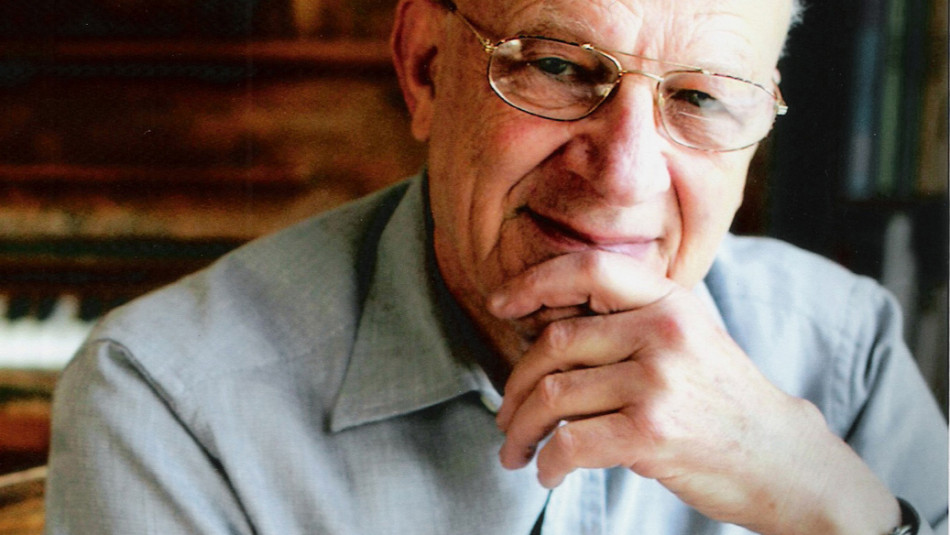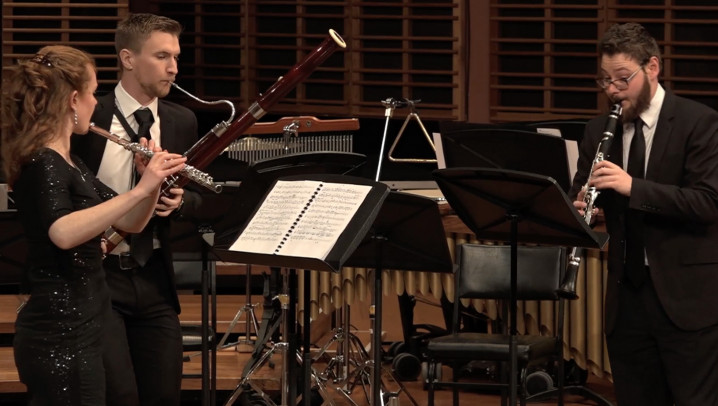
George Dreyfus AM
German-born Australian composer and bassoonist
| Gender | Male |
|---|---|
| Nationality | Australia |
| Website | http://www.australianmusiccentre.com.au/artist/dreyfus-george |
George Dreyfus was born in Wuppertal in 1928. After fleeing Nazi persecution in 1939, he and his family settled in Melbourne. He trained as a bassoonist and began a career as an orchestral musician, playing for JC Williamson’s touring orchestra and eventually the Victorian Symphony Orchestra (1953–64). In 1955 a grant enabled him to continue instrumental studies at the Imperial Academy of Music in Vienna. Back in Australia in 1956 he completed his first composition, Trio for Flute, Clarinet and Bassoon (1956). In the early 1960s up to and including his opera Garni Sands (1965-6), Dreyfus explored modernist European sounds in his work.
After completing the opera, Dreyfus turned his back on advanced idioms and decided to become a freelance composer. His First Symphony (1967) is already aggressive in its traditionalism. At the same time, he developed a vein of self-lacerating humour and irreverent comedy that unified his musical output and his public persona to an extent unique among Australian composers. His theatre pieces moved towards fable, comedy and revue; his account of the rejection of the opera The Gilt-Edged Kid (1970) became a set piece of the surrealistically entertaining, often musically punctuated, monologues that constituted part of his public identity.
During the 1970s and 80s, Dreyfus was busy with music for films, television and theatre. His exuberant adaptation of a traditional 19th-century song for the title theme of Rush (1974), a television gold rush adventure series, became popular on both radio and recording. Australian Aboriginal tradition entered his concert music with the Sextet (1971) for didjeridu and wind quintet, which maintains the independence of a rhythmicized didjeridu drone within the activity of Western wind instruments. He also used a didjeridu, an Italian zampogna and a Chinese suona in the instrumentation of Rathenau (1991–2), a large operatic score. Based on a German language libretto by Volker Elis Pilgrim, the opera uses simultaneously sung texts to invoke a theatrical meditation on the career of a German industrialist (a surrogate for Dreyfus’s own father) who became too patriotic for the good of his own German-Jewish identity. With this work, therefore, and also with its successor, Die Marx Sisters (1994–5), Dreyfus returned to his origins without neglecting the traits of his adopted homeland.
In 1991 Dreyfus was awarded the Australia Council's Don Banks Fellowship, and in 1992 was made a Member of the Order of Australia for his services to music. In 2002 he was awarded the Bundesverdienstkreuz 1. Klasse. At the APRA Music Awards of 2013 he was recognised for his Distinguished Services to Australian Music.


